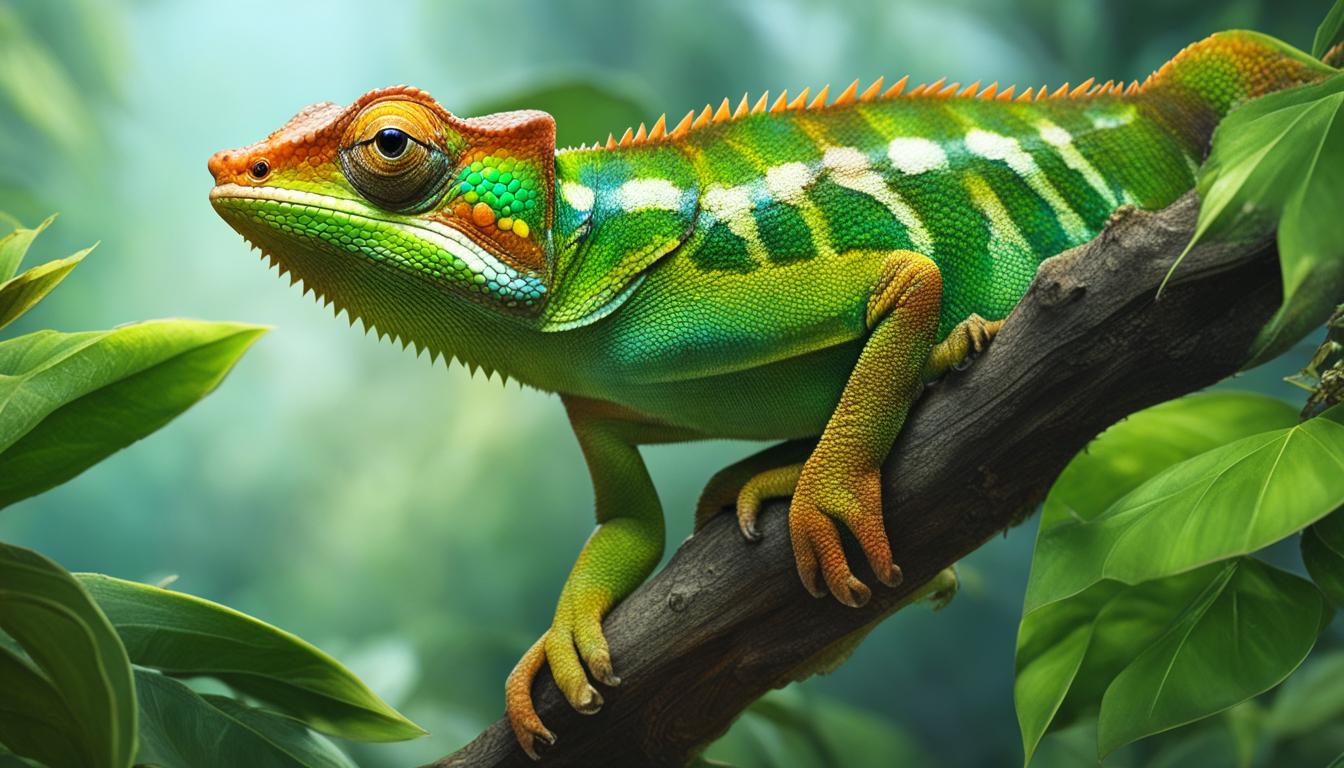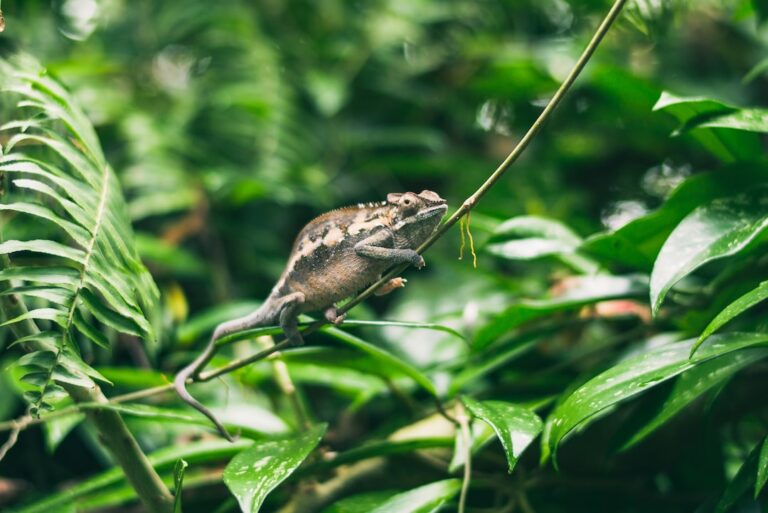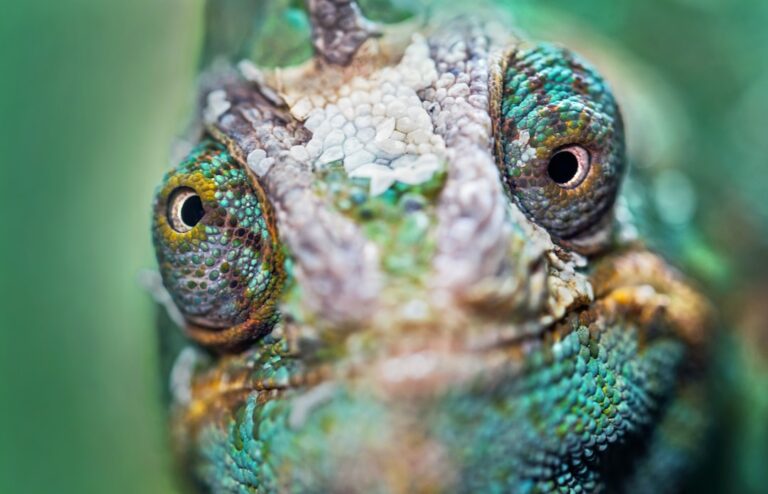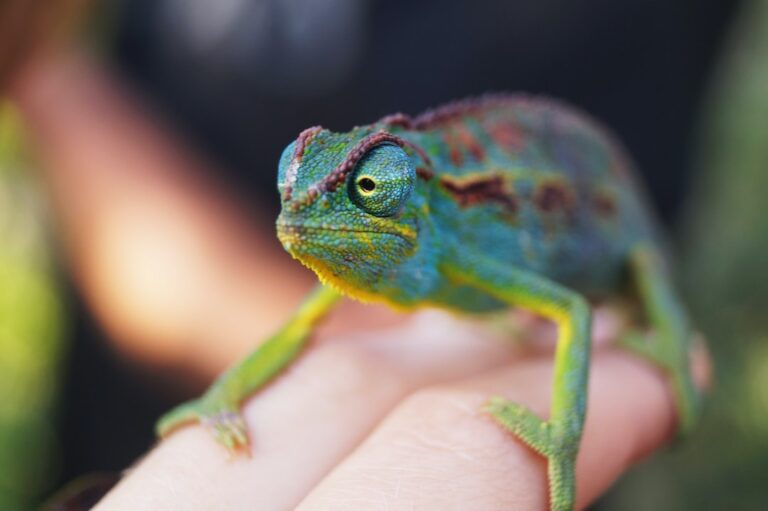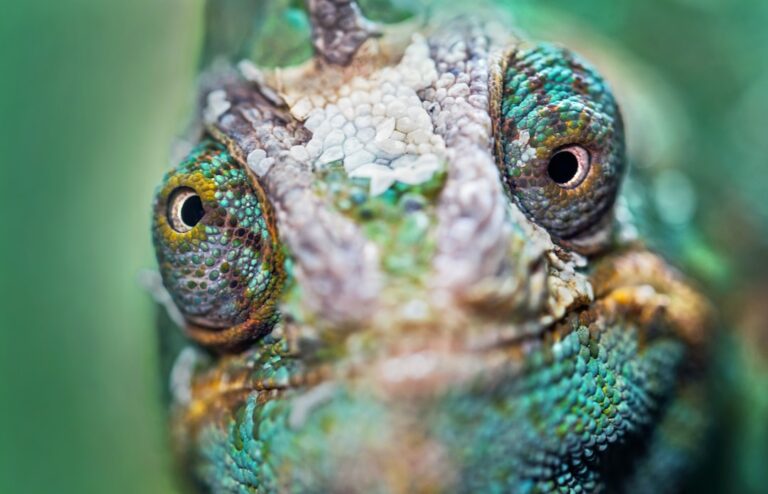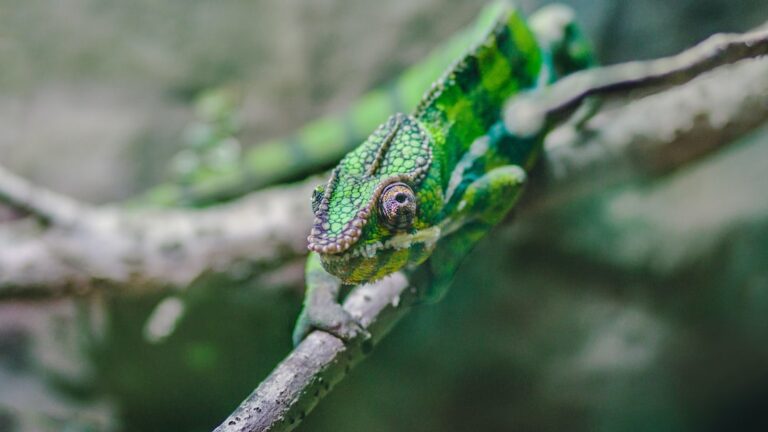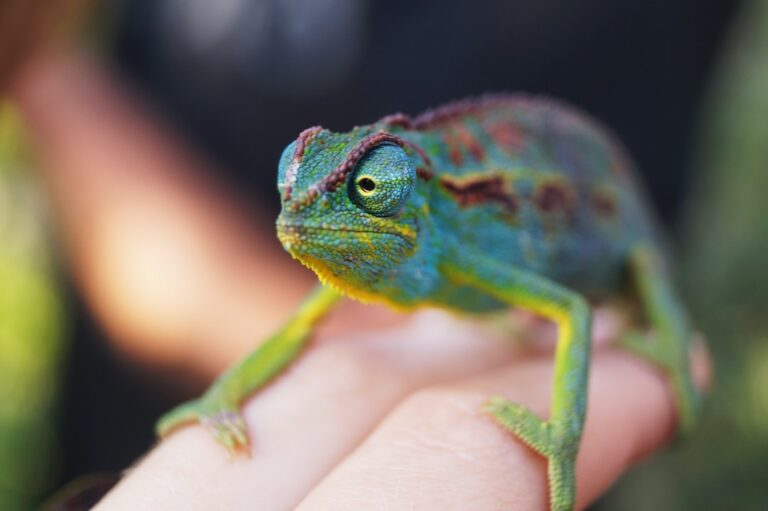Can Chameleons Eat Watermelon?
Feeding chameleons watermelon may seem like an unusual idea, but it has become a topic of interest among reptile enthusiasts. Chameleons are known for their unique ability to change color and their specialized diet. So, the idea of offering them a juicy slice of watermelon raises some questions. Is it safe for chameleons to eat watermelon? Can they digest it properly? In this article, we will explore the curious case of chameleons and watermelon.
Table of Contents
Understanding the Chameleon Diet: What Do They Eat?
Chameleons are insectivores, which means their natural diet consists mainly of insects such as crickets, grasshoppers, and mealworms. In the wild, they also consume small reptiles and birds. Their diet is high in protein and low in carbohydrates and fats. This specialized diet is essential for their health and well-being.
In captivity, it is important to mimic their natural diet as closely as possible. Feeding them a balanced diet that consists primarily of live insects is crucial for their nutritional needs. While chameleons may occasionally eat fruits or vegetables in the wild, these should only be offered as occasional treats and not as a staple part of their diet.
The Nutritional Value of Watermelon: Is It Good for Chameleons?
Watermelon is a popular summer fruit known for its high water content and sweet taste. It is also a good source of vitamins A and C, as well as potassium. However, when it comes to chameleons, the nutritional value of watermelon may not be sufficient to meet their dietary needs.
Chameleons require a diet that is high in protein and low in carbohydrates and fats. While watermelon does contain some vitamins, it lacks the essential nutrients that chameleons need to thrive. Feeding them watermelon as a regular part of their diet may lead to nutritional deficiencies and health problems.
Can Chameleons Digest Watermelon?
Chameleons have a unique digestive system that is adapted to their insectivorous diet. Their digestive tract is relatively short, which allows them to quickly process and absorb nutrients from their prey. However, this specialized digestive system may not be well-suited for digesting fruits like watermelon.
Watermelon is high in fiber and water content, which can be difficult for chameleons to digest. Their digestive system is not designed to break down plant matter efficiently. Feeding them watermelon may result in digestive issues such as bloating, diarrhea, or even impaction.
How Much Watermelon Can Chameleons Eat?
If you still want to offer your chameleon a taste of watermelon, it is important to do so in moderation. Feeding them small amounts of watermelon as an occasional treat is generally safe. However, it should never replace their regular diet of live insects.
A good rule of thumb is to offer a small piece of watermelon once or twice a month. This will provide them with a little variety in their diet without compromising their nutritional needs. Remember to remove any uneaten portions of watermelon from their enclosure to prevent spoilage and bacterial growth.
Risks and Benefits of Feeding Watermelon to Chameleons
Feeding watermelon to chameleons comes with both risks and potential benefits. On the one hand, watermelon can provide some hydration and a small amount of vitamins. It can also be an enriching treat for your chameleon, as they may enjoy the taste and texture.
On the other hand, there are several risks associated with feeding watermelon to chameleons. As mentioned earlier, their digestive system may struggle to process the high fiber and water content of watermelon. This can lead to digestive issues and potential health problems.
Other Fruits and Vegetables Suitable for Chameleons
While watermelon may not be the best choice for chameleons, there are other fruits and vegetables that can be offered as occasional treats. Some suitable options include small pieces of berries, such as blueberries or raspberries, or leafy greens like kale or collard greens.
It is important to remember that these should only be offered in small quantities and as occasional treats. The majority of their diet should still consist of live insects to ensure they receive the necessary nutrients.
Tips for Feeding Chameleons a Balanced Diet
To ensure your chameleon receives a balanced diet, here are some tips to keep in mind:
1. Offer a variety of live insects: Chameleons require a diverse range of insects to meet their nutritional needs. Offer a variety of options such as crickets, mealworms, and waxworms.
2. Gut-load insects: Before feeding insects to your chameleon, make sure they are well-fed with nutritious foods. This will enhance the nutritional value of the insects.
3. Dust insects with supplements: Chameleons require additional vitamins and minerals that may not be present in their prey. Dusting the insects with a reptile-specific supplement will ensure they receive these essential nutrients.
4. Provide UVB lighting: Chameleons require UVB lighting to properly metabolize calcium and maintain healthy bones. Make sure to provide them with a UVB light source in their enclosure.
Signs of Overfeeding or Underfeeding Chameleons
Monitoring your chameleon’s food intake is crucial to ensure they are receiving the appropriate amount of nutrition. Signs of overfeeding may include weight gain, lethargy, and decreased appetite for live insects. On the other hand, signs of underfeeding may include weight loss, decreased activity, and a dull appearance.
If you notice any of these signs, it is important to adjust their diet accordingly. Consult with a reptile veterinarian for guidance on how to properly feed your chameleon and address any health concerns.
To Feed or Not to Feed Watermelon to Chameleons?
In conclusion, while watermelon may be a tempting treat for your chameleon, it is not an ideal food source for them. Chameleons require a diet that is high in protein and low in carbohydrates and fats. Feeding them watermelon as a regular part of their diet may lead to nutritional deficiencies and digestive issues.
Instead, focus on providing them with a balanced diet that consists primarily of live insects. Offer occasional treats of other fruits and vegetables in small quantities. Remember to monitor their food intake and consult with a reptile veterinarian if you have any concerns about their health or diet. By following these guidelines, you can ensure that your chameleon remains healthy and happy.
If you’re curious about the eating habits of chameleons, you might also be interested in learning about the intelligence of these fascinating creatures. Check out this article on “Are Chameleons Smart?” to discover just how clever these reptiles can be. From their ability to change color to their unique hunting techniques, chameleons are truly remarkable creatures. Find out more about their intelligence and behavior by clicking here.

